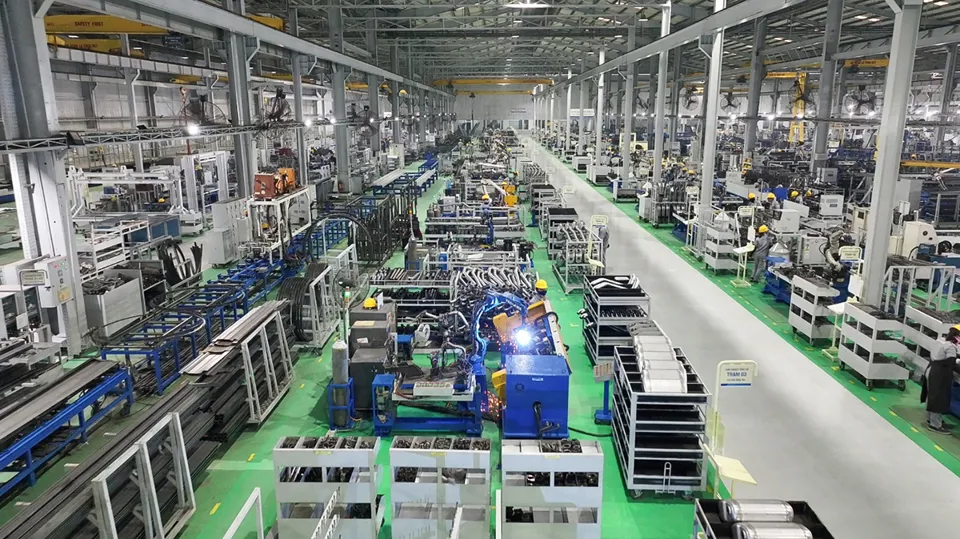Vietnamese Gov’t focuses on three major driving forces for growth
The banking sector should provide sufficient capital for the economy, particularly in priority areas and other growth drivers such as consumption, investment, and exports.
The Government will continue to focus on three main drivers of economic growth, including domestic consumption, investment, and exports, to promote economic recovery, according to the Government's Resolution No.88.
| Car production at Thaco's manufacturing plant. Photo: Quang Hai/The Hanoi Times |
As the global economic, socio-political, and security situations remain complex and unpredictable, Vietnam will continue to face difficulties and constraints from external factors and internal shortcomings that have persisted for several years.
Given this situation, the Government has called for maintaining macroeconomic stability, controlling inflation, and promoting economic growth while ensuring key economic balances. There is also a focus on developing industries and sectors, with efforts aimed at achieving the socio-economic goals and tasks set for 2023.
The Government has instructed ministries, agencies, and local authorities to actively assess the production and business activities to identify and solve problems on time, especially in terms of policies and mechanisms.
They also prioritize social security initiatives to ensure the well-being of the population. Efforts are being made to monitor and understand the labor market to create more jobs while helping stabilize workers' livelihoods.
Administrative reform should also be accelerated, emphasizing eliminating redundant procedures and unbeneficial business requirements.
The Government aims to avoid imposing new regulations that create unnecessary costs, procedures, and time burdens that could negatively impact businesses and the general population.
The Ministry of Finance is responsible for improving the management of state budget revenues and expenditures. This includes significant reductions in recurrent and non-essential expenditures.
The ministry will also implement policies related to tax extensions, exemptions, and reductions, as well as the reduction of fees, charges, and land rents.
An urgent task is the finalization of the Government's draft decree on the collection of registration fee collection for domestically manufactured and assembled automobiles. The decree aims to reduce the registration fee rate by 50% for cars manufactured and assembled in Vietnam. It is scheduled to be implemented from July 1, 2023, to the end of the year.
The State Bank of Vietnam (SBV) manages interest rates in line with macroeconomic stability, inflation, and monetary policy objectives. To support economic recovery and the development of production and business activities, the central bank should encourage credit institutions to strive for lower deposit and lending interest rates.
Specific measures will be implemented to enhance the capital absorptive capacity of the economy. These include managing credit volume growth and maintaining a reasonable credit structure. The aim is to meet the credit needs of the economy by channeling capital to productive sectors, especially in priority areas, and to other growth drivers such as consumption, investment, and exports.
At the same time, credit allocation to potentially risky sectors is strictly controlled.
The Ministry of Industry and Trade (MoIT) has been mandated by the Government to lead and coordinate efforts to effectively implement the Power Development Plan VIII. This includes proactively managing and ensuring a stable power supply for production and daily activities, especially during the peak season of high demand, and addressing power shortages.
The MoITwill review and expedite the issuance of operating permits for eligible renewable energy projects, facilitating their timely operation while balancing benefits and risk sharing.
Local authorities are responsible for implementing comprehensive solutions to ensure efficient and economical electricity use within their jurisdictions.
The MoIT will continue to promote existing free trade agreements (FTAs) and provide timely information, alerts, guidance, and assistance to businesses in responding to trade remedy actions and adapting to new standards and techniques imposed by exporting partner countries.













